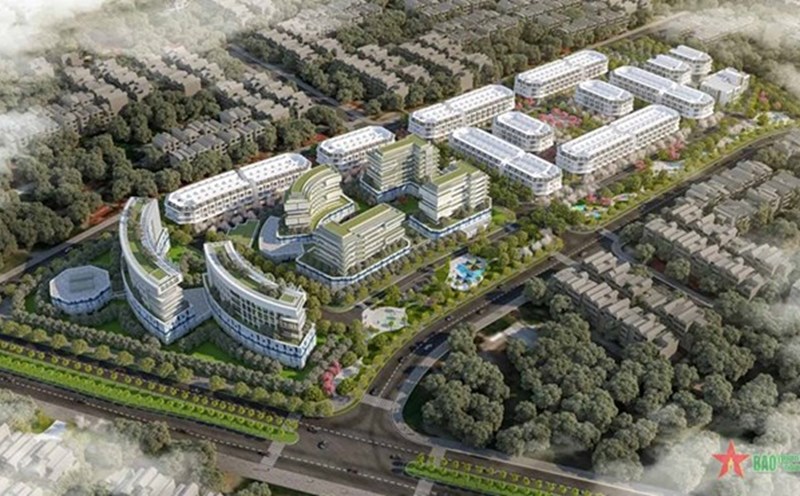The latest report from the Vietnam Association of Realtors (VARS) said that, implementing the tourism development stimulus program, the Government has just issued Resolution No. 229 on visa exemption for citizens of 12 countries, from August 15 to August 14, 2028. In August, the Government also issued Decree No. 221 regulating the temporary visa exemption for foreigners who are special beneficiaries for socio-economic development.
According to VARS, this is a strong step forward in immigration procedures, helping Vietnam improve competitiveness with destinations in the region, attracting international visitors - a group of visitors with long stays and high spending.
The recovery of the tourism industry with strong growth in the number of international visitors, leading to a strong increase in the demand for accommodation, resorts and experiences, has contributed to promoting the recovery process in key tourism and resort real estate markets.
Survey information from the Vietnam Real Estate Market Research and Evaluation Institute (VARS IRE) and statistical information from the Departments of Culture, Sports and Tourism of provinces and cities shows that currently, room occupancy at 4-5 star hotels in key tourism markets is recorded at 70 to 90%, even room occupancy during holidays and festivals, with room revenue increasing by 20 - 30% over the same period.
Notably, these destinations are all the localities that attract the largest international visitors such as Da Nang, Nha Trang, Phu Quoc, with synchronous infrastructure systems, strong tourism brands, and clear strategies to attract international visitors. Thanks to that, the value of tourism and resort real estate in the above localities is also gradually improving.
Some projects also recorded secondary transaction prices increasing by 5 - 10% in the past year. Along with that, a series of high-end resort projects have also been implemented and restarted and some investors have boldly opened projects for sale with positive transaction results.
VARS IRE believes that the visa exemption policy will continue to promote the speed of room capacity recovery, attracting new investment needs in real estate projects. Many investors will continue to take advantage of this signal to launch products or restart projects that have been stalled in key tourism areas.
In addition, maintaining and expanding the visa exemption policy also helps shape the long-term resort real estate development strategy. The strong increase in the number of international visitors with long stays and high spending ability will motivate investors to promote the development of high-end products such as beach villas, international standard resorts or luxury condotel.
At the same time, to anticipate the rapid increase in international visitors, many localities will prioritize investment in key infrastructure such as airports, seaports, and connecting transportation systems. This not only improves tourism service capacity, but also increases the value of real estate in the whole area.
In the long term, maintaining and expanding the visa exemption policy also contributes to enhancing Vietnam's attractiveness as a long-term resort and investment destination. A part of international visitors, especially those who have come to Vietnam many times, tend to buy real estate for long-term living, retirement and investment. Thanks to that, the resort real estate market not only benefits from short-term demand, but also strengthens the foundation for sustainable long-term growth.
VARS IRE believes that the visa exemption policy is an important " lever" to help the Vietnamese tourism industry recover quickly and sustainably after the pandemic. However, to turn this advantage into a breakthrough driving force for tourism and resort real estate, investors need to continue to create differences in products and experiences to enhance competitiveness with countries in the region, such as developing diverse product projects, developing tourism products combined with health care, or linking with developing the night-time economy to retain tourists for longer.
At the same time, the State needs to promptly remove legal obstacles, create a transparent and stable investment environment, thereby strengthening the confidence of domestic and foreign investors.










